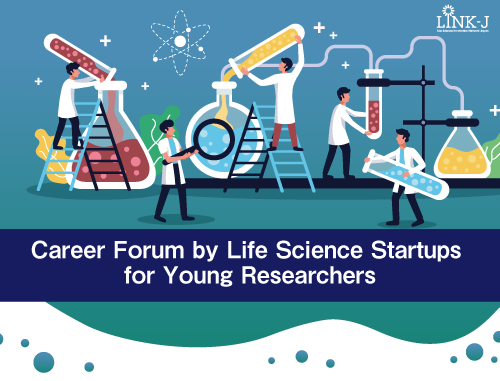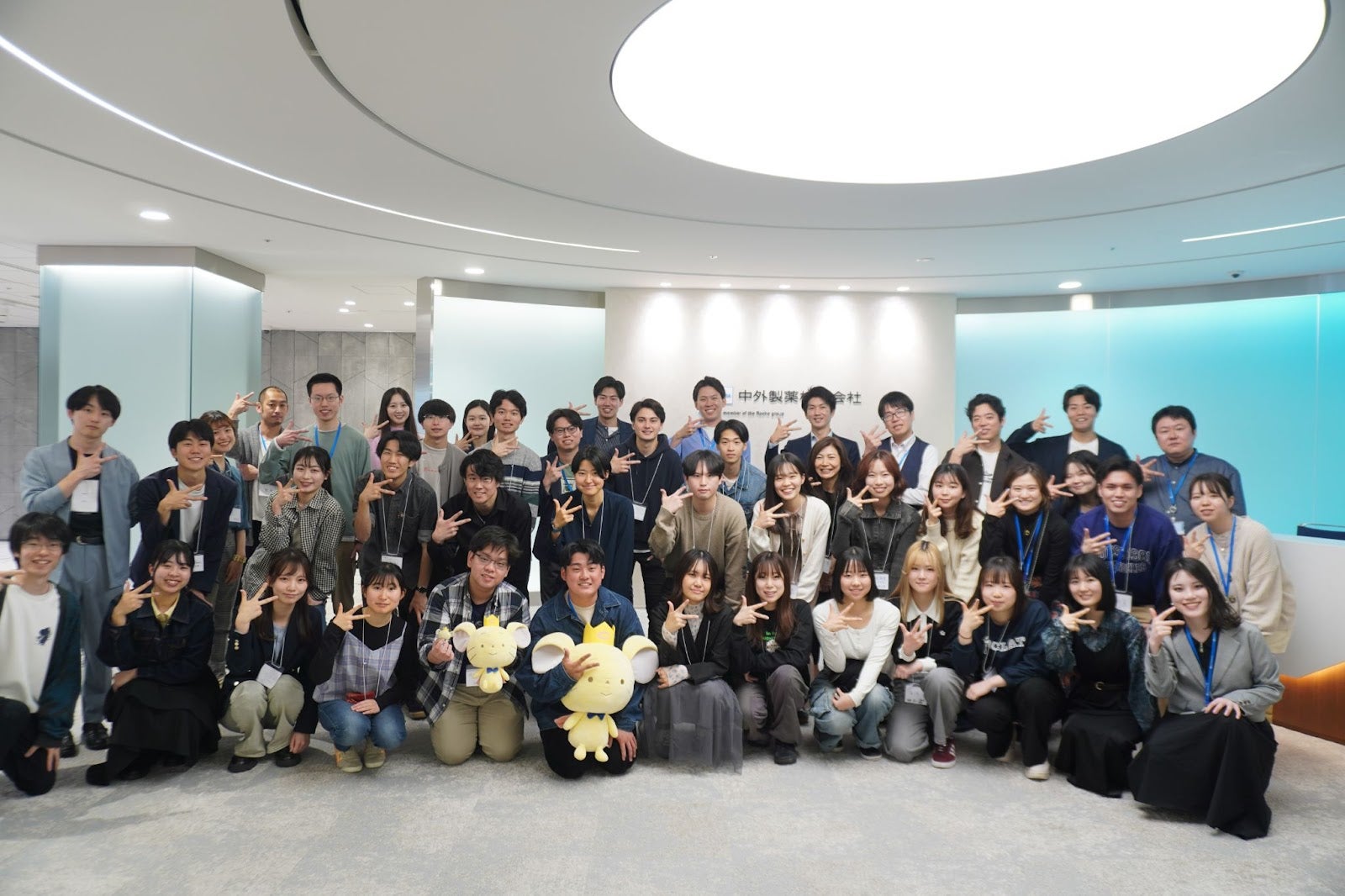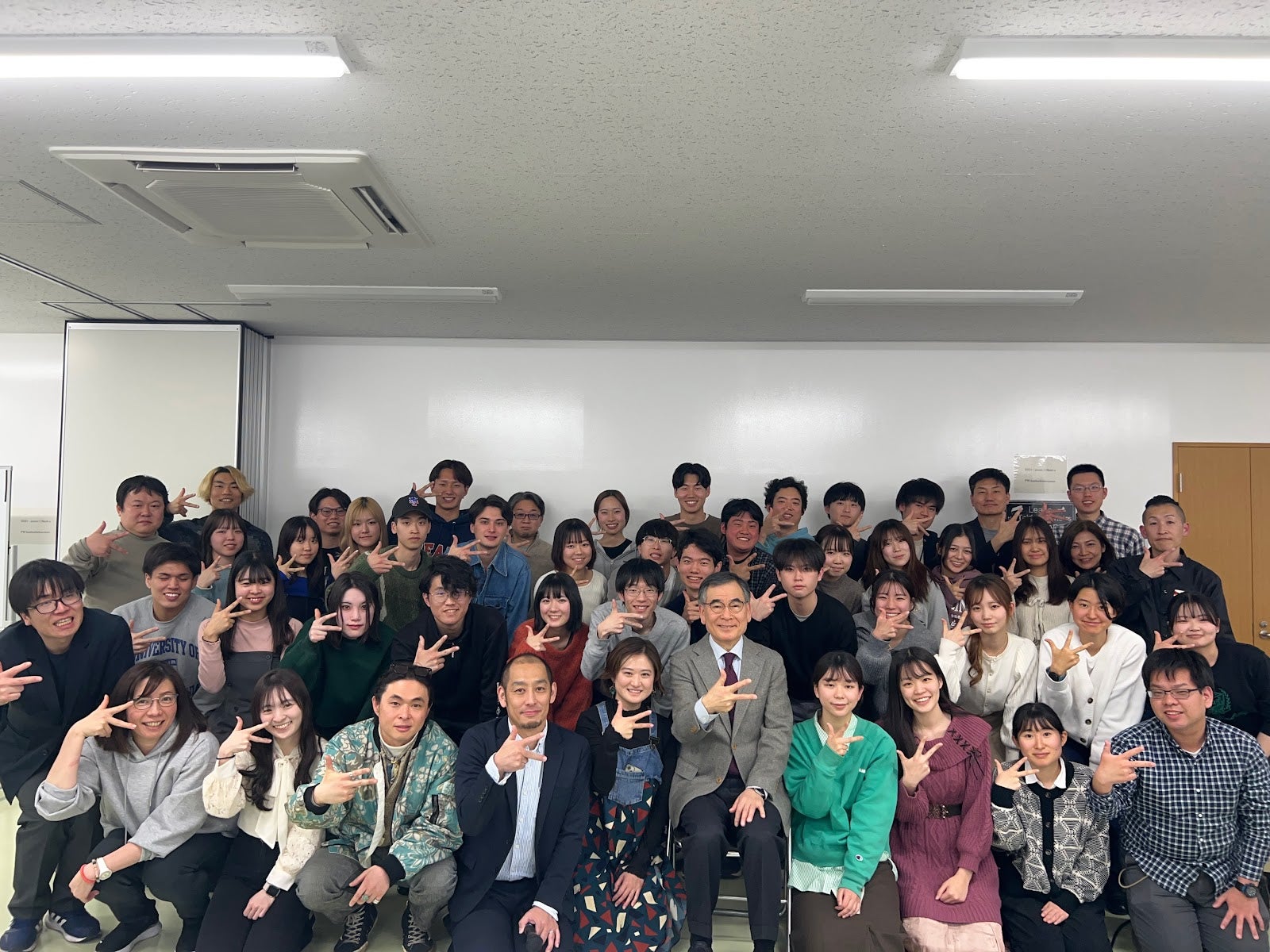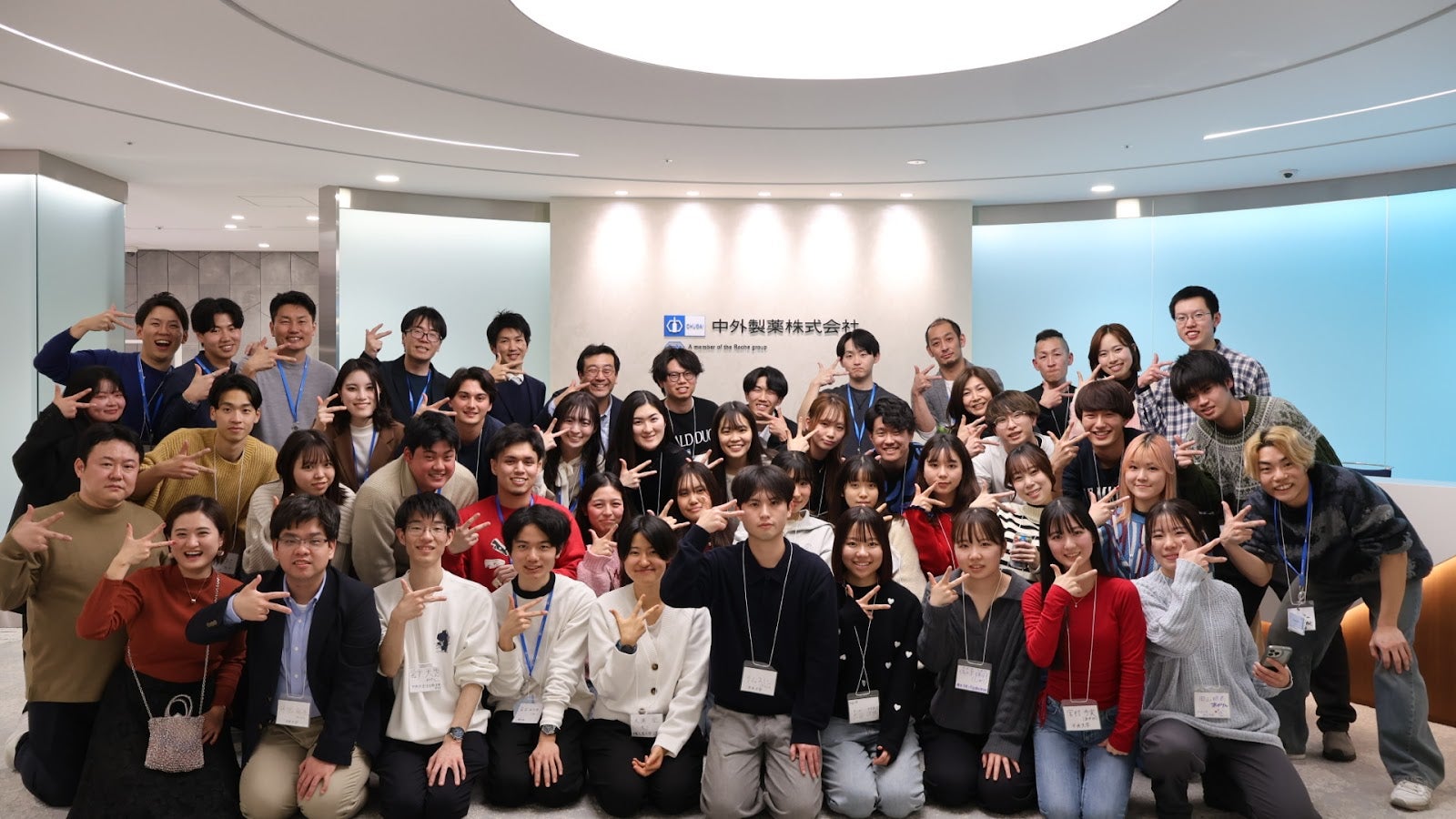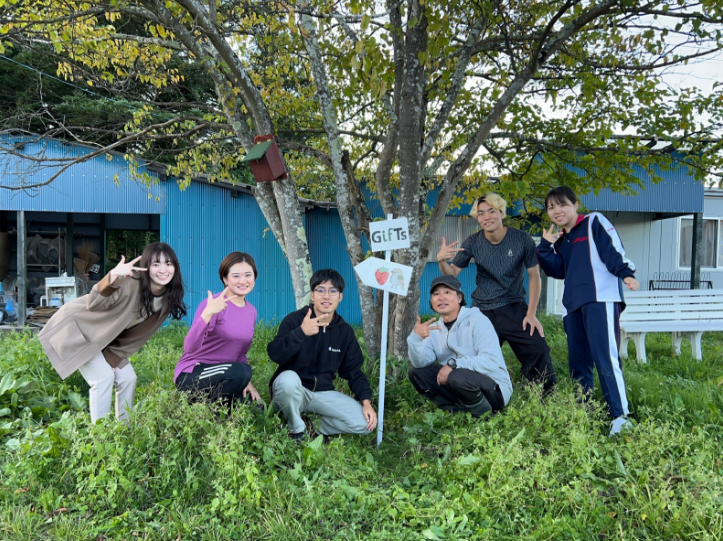
Life science startup companies are suffering from staff shortages and are always seeking excellent researchers. Most students in doctoral programs, however, are only aware of academia or large companies as career path choices. This time we are speaking with three people who are appealing for the need to change the current state for the overall life sciences industry to developing and expounding the importance of thinking flexibly about a variety of career path choices.
If you look for them, there are many options for a Ph.D.'s career path.
――This time LINK-J supporter Ms. Mizunuma assisted in bringing together herself and the other guests to discuss this topic. First of all, please tell us how you came to know each other?
Mizunuma Mr. Ichikawa and Mr. Miyazaki are friends who worked in the same laboratory of the pharmaceutical department. Mr. Ichikawa and I have been friends since graduate school and we are both currently in management at Craif Inc. Mr. Miyazaki works at ANRI, a venture capital that has invested in Craif and he provides advice in Craif's strategy meetings, etc.
――May I ask you to share your backgrounds with us?
Ichikawa I received a Ph.D. in chemical biology from the University of Tokyo Graduate School of Pharmaceutical Sciences. I researched interesting technology for creating chemical compounds using organic chemistry techniques and applying them to biology, but I felt there were many difficult obstacles for applying this in society, so after graduation I joined an international pharmaceutical company. I worked for five and half years on the commercial side, such as MR, marketing, and business planning, and then left the company after feeling I had accomplished my work at a major company. After that I helped with three startup companies at the same time and one of those companies, Craif, asked me if I would serve as the CTO, which I have joined in January 2019. Craif aims to achieve early diagnosis of cancer from urine tests and is making practical a technology for efficiently sampling in vivo exosomes using a nano wire device to show the state of an illness.
Mizunuma: After graduating from Kyoto University, I received a doctorate in neuropharmacology research from the University of Tokyo Graduate School of Pharmaceutical Sciences. After being involved with a new drug launch project for about a year, I joined a strategy consulting firm and then with some former employees of that firm I started a company in the consumer health sector. Currently I am participating as COO in Craif that Mr. Ichikawa leads.
Miyazaki I'm from the same laboratory with Mr. Ichikawa, and for graduate school I went to Stanford University where I earned a doctorate degree. Many upperclassmen that I knew at the University of Tokyo went to the United States for post-doctorate study after receiving their Ph.D.s, so I decided to just go to America in the first place. I had intended to remain in academia after receiving my doctorate, but after seeing my course professor and the professor of an adjacent laboratory launch companies, I thought that using technology to give back to society was an attractive path, so instead of staying in academia I joined a large Japanese company in the US. However, after a year, the timings of various situations aligned, so I decided to return to Japan. After returning to Japan, I worked for a strategy consulting firm, and since 2018 I have been the investment supervisor for mostly bio startups at ANRI.

――So, all three of you have worked at a large company. Seven or eight years ago, that was the general choice of career for newly minted Ph.D. graduates, am I right?
Mizunuma At the time, just under half of the people went to academia and the rest joined companies. Research positions at large pharmaceutical companies were popular and I think it was unusual to work on the business side like Mr. Ichikawa and I did.
Miyazaki In America, to work as a researcher in a major pharmaceutical company, generally requires three to five years of post-doctoral work after graduation. Some of my friends who were worked immediately after earning a Ph.D. went to work at a government agency, like the FDA, served as an editor for an academic journal, worked at a consulting company, a venture company, or started their own company.
Mizunuma The options in America are quite diverse. In Japan, when you talk about hiring, the image of spending all of your working life at a major company was still quite strong. That was how it was with me. At a point, however, I came to think that belonging to a major company was a serious risk because your life becomes subject to the decision-making whims of the company. So I left the pharmaceutical company to build my career as I wanted.
――In Japan there are some people who think it is more advantageous for employment to have a master's degree rather than a doctorate degree. How is it in the life sciences field?
Mizunuma It's true that before now there were many companies that hired people with master's degrees and then developed them in-house, so there were fewer opportunities for people with doctorates to land their first job. But your first job isn't everything. I think to survive in the labor market, people with doctorates who can offer a specialty have the advantage. In my case for example, I combined business experience in an operating company and a consulting company with my specialty in biology to create a nearly unique career. I realized this is a great strength.
Ichikawa It appears there are some opinions which think it is best not to get a Ph.D. if that hurts their employment chances. The process of earning a doctorate degree, however, is not limited to just the envisioned specialty, but also entails acquiring logical thinking and the ability to carry out projects, so you should be able to get a variety of work by leveraging those skills. Changing from a passive mindset should open up the way.

――When startups are looking to hire, what kind of people are they looking for: new doctorate graduates, new master's graduates, or people with experience in a corporate research center, for example?
Mizunuma We'd like to hire experienced people if available, but these people don't show up in the job pool very often, so currently most of our hires are new doctorate graduates. People with a doctorate, however, have a wide range of skills from problem setting to project management and team building, so even new graduates can contribute immediately. That is different from people with a master's degree.
Miyazaki I feel the same way and think that earning a Ph.D. is actually the first career position. In a doctorate program which testing and thinking are used to repeatedly verify hypotheses is the problem-solving process in action. I feel that Ph.D.s who have intentionally done this have received training that will also be effective in business. There are also, however, Ph.D.s that have only mechanically conducted the experiments as told to by their instructors, so being able to discern if we can work with them is important.
Ichikawa Startups also require people who can frequently change direction and make quick results. So, another important point is if they can be comfortable in such a culture.
You can experience your own growth speed and the dynamism of business in a startup
――All of you gave speeches at the Career Forum by Life Science Startups for Young Researchers held last September by LINK-J. I think it was an extremely beneficial event attended by over 100 people.
Miyazaki We learned from our experiences that there are options other than academia and large companies, but we feel that many students are not aware of those options. There is also the option of working for a startup. There is also the option of working for a time after obtaining a bachelor's degree and then going to graduate school after clarifying what it is you want to learn. The purpose of my talk was to show them they have many options so that they can used that information to make their decisions.
Mizunuma There is a tendency for people's impression of startups to only be that they are unstable, but today startups are becoming the hot spots for research and development and the team members in our company are enthusiastically engaged in their research backed by a larger budget than they would have in academia. When I talked on purely a science basis about how interesting the research is to communicate this reality, the attendees were very interested. There is a disparity in access to information between Tokyo and the regional areas, but I think another good point about the event was that it was held online giving students throughout Japan the opportunity to participate. In this age we have access to an abundance of information via the internet, so I also want students in the regional areas to aggressively take advantage of such opportunities.

――Please tell us again about the attractiveness of working for a startup.
Mizunuma I think it's being able to realize the speed of your growth. In a large company, opportunities and chances are doled out by seniority, so you spend a lot of time waiting in line, but in a startup even new people are working at the forefront of the business. The experience of repeatedly making quick decisions, such as changing a testing method based on new data, is also interesting. Craif has already become a multinational team, so we often hold discussions in English and new people develop quickly in such an environment.
Ichikawa A startup will force you to work outside of your comfort zone. As the company grows, you will be faced with work that exceeds your capacity, so your skills will improve no matter what. Also, the research develops in many unforeseen directions based on the research results, environmental changes, and information gathered from inside and outside of the company. Each time this happens the entire company moves dynamically and that is also a lot of fun.
Miyazaki Lifetime employment can no longer be taken for granted in Japan either, and we are entering the age where individuals must demonstrate and certify what they can do. If a person undergoes the practical and unique training that is available in a startup, I think they will have the tools they need to survive in the future.
――What should be done to have more Ph.D.s become interested in participating in and launching up startups?
Ichikawa I wanted to bring more new technology into the world, but I never imagined starting a company or participating in a startup when I was job hunting. The reason I could run to such an opportunity now is because of the influence of Ms. Mizunuma, who started a company, and Mr. Miyazaki of a VC firm have had on me to make the venture business feel familiar. I want to continue through activities such as the career forum to have many students feel familiar with venture businesses.
Miyazaki The examples which I saw in America, researchers who just seem normal and not really charismatic were starting companies and research that it seemed even I could do was exiting, and this had the largest spillover effect on the surrounding people. I think that in time the same thing will happen in Japan.
Mizunuma There are already an increasing number of IT startups. The employees of IT venture businesses that succeeded often think, "I can do it too" and they go independent and start their own businesses. So, the more success stories there are, the more startups there will be. For bio businesses as well, some of my upper classmates have already started successful companies, so if we make a success of this business, that will inspire other young Ph.D.s to start businesses.
Ichikawa For the development of the overall life sciences industry, it would be best that, in addition to the people taking on the challenge to start businesses, for it to become common for there to be Ph.D.s among the players throughout the entire ecosystem, such as the VCs and university TLOs. To greatly nurture technology, there also needs to be people who understand technology on the side providing the infrastructure for growth.
Miyazaki The environment of researchers in Japan as well as their motivation and values regarding work are gradually changing. It would be very interesting if, going forward, we could increase the mobility of the Ph.D. workforce including people changing to other jobs from large companies.

 Mika Mizunuma, Ph.D. LINK-J Supporters / COO at Craif, Inc., Founder/Director at Watashikampo
Mika Mizunuma, Ph.D. LINK-J Supporters / COO at Craif, Inc., Founder/Director at WatashikampoShe received a B.A., in pharmaceutical sciences from Kyoto University, and a Ph.D. from the University of Tokyo.
From 2013 to 2014, she worked at AstraZeneca and engaged in new product launch and developing medical strategy. From 2014 to 2017, she worked at McKinsey & Company and engaged in developing new business strategy and product strategy in healthcare field. Afterwards, she founded digital health company, Watashikampo, and launched an online pharmacy service.
She is also a Chief Operating Officer at Craif.inc, leading business development and research of its unique exosome-trapping nanodevice.
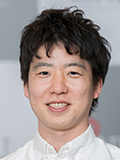 Yuki Ichikawa, Ph.D. Chief Technology Officer (CTO) of Craif Inc. / Visiting Associate Professor, Institutes of Innovation for Future Society, Nagoya University
Yuki Ichikawa, Ph.D. Chief Technology Officer (CTO) of Craif Inc. / Visiting Associate Professor, Institutes of Innovation for Future Society, Nagoya UniversityReceived a doctorate from the University of Tokyo Graduate School of Pharmaceutical Sciences. While specializing in and conducting research on chemical biology, also assisting with the implementation of medical technology in developing countries through a US NPO. Joined a foreign pharmaceutical company in July 2013. Served in such roles as MR, company-wide project PMO, and manager of marketing and business planning. After leaving the company in January 2019, participated in Craif Inc.
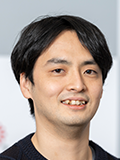 Yusuke Miyazaki, Ph.D.Principal of ANRI Inc.
Yusuke Miyazaki, Ph.D.Principal of ANRI Inc.Raised in Osaka Prefecture. After conducting basic research on biology at the Graduate School of Stanford University, at the US subsidiary of a Japanese pharmaceutical company was involved in technology discovery, new business development, and business alliances with overseas companies. Later, after returning to Japan, worked with mainly new businesses in the healthcare sector at a foreign consulting firm. Participated in ANRI in 2018. Oversees mainly investment in bio startups.
